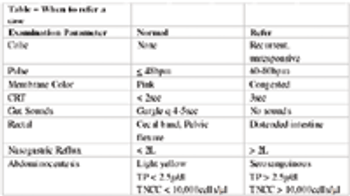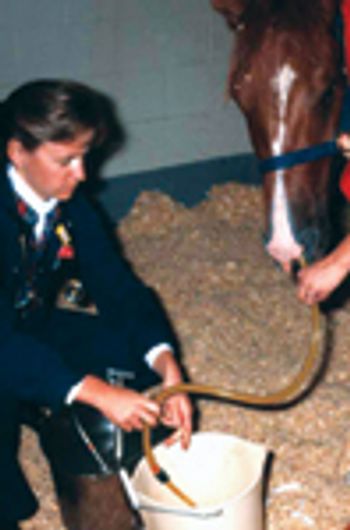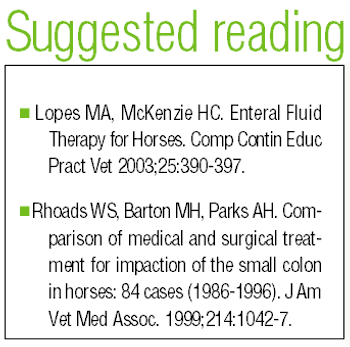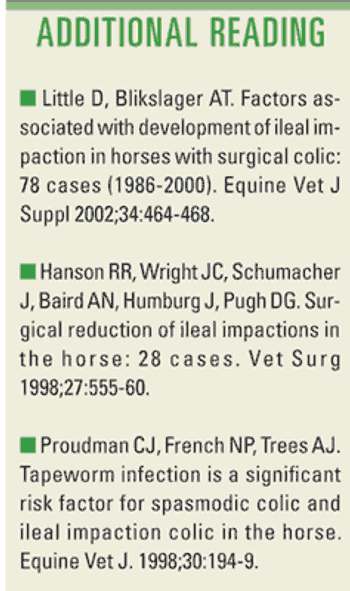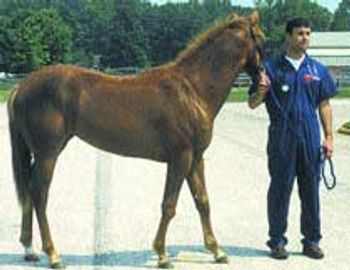
Small colon impaction is a relatively infrequent cause of colic. However, when it does occur, it can be difficult to recognize and to manage. We have noticed over the last several years that many of these cases are initiated by diarrheal disease, making the eventual diagnosis of an obstructive condition unexpected by the veterinarian.




